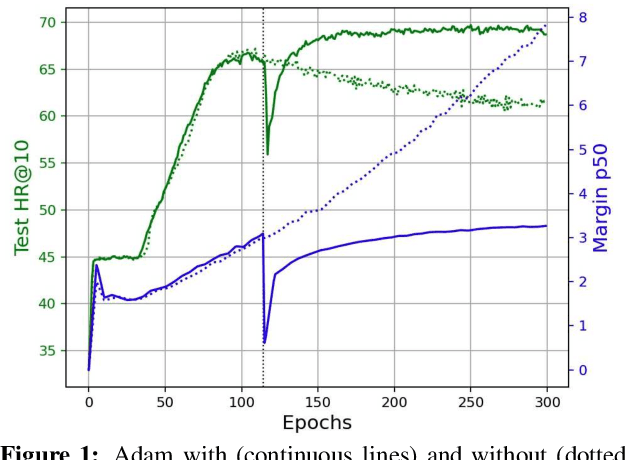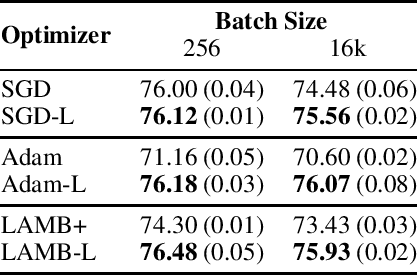Anika Ramachandran
Logit Attenuating Weight Normalization
Aug 12, 2021



Abstract:Over-parameterized deep networks trained using gradient-based optimizers are a popular choice for solving classification and ranking problems. Without appropriately tuned $\ell_2$ regularization or weight decay, such networks have the tendency to make output scores (logits) and network weights large, causing training loss to become too small and the network to lose its adaptivity (ability to move around) in the parameter space. Although regularization is typically understood from an overfitting perspective, we highlight its role in making the network more adaptive and enabling it to escape more easily from weights that generalize poorly. To provide such a capability, we propose a method called Logit Attenuating Weight Normalization (LAWN), that can be stacked onto any gradient-based optimizer. LAWN controls the logits by constraining the weight norms of layers in the final homogeneous sub-network. Empirically, we show that the resulting LAWN variant of the optimizer makes a deep network more adaptive to finding minimas with superior generalization performance on large-scale image classification and recommender systems. While LAWN is particularly impressive in improving Adam, it greatly improves all optimizers when used with large batch sizes
 Add to Chrome
Add to Chrome Add to Firefox
Add to Firefox Add to Edge
Add to Edge